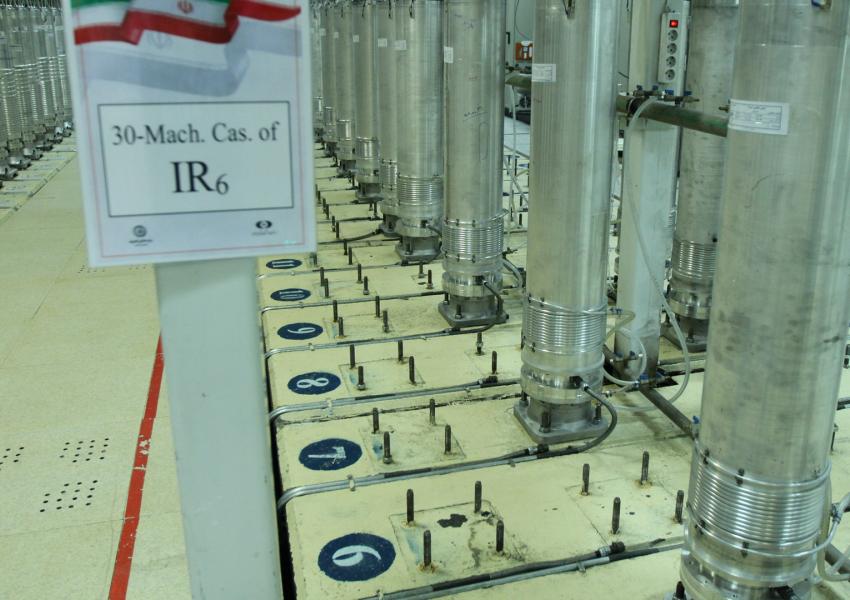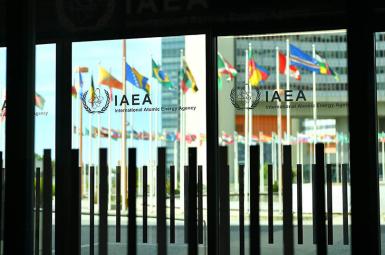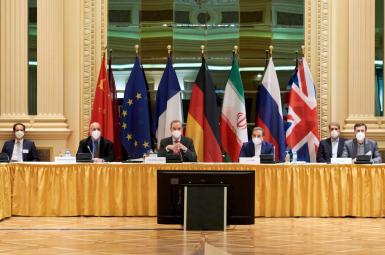
IAEA Confirms Iran Has Begun Process Of Enriching Uranium To 20%
The International Atomic Energy Agency (IAEA) has confirmed in a report to member states that Iran has begun the process of enriching uranium to 20 percent, the highest level since its 2015 deal with world powers, Kazem Gharibabadi, Iran’s ambassador to the agency said on Monday [January 4].
In a tweet, Gharibabadi, wrote that the agency’s director Rafael Grossi had confirmed that “a cylinder containing 137.2 kg of uranium (enriched) up to 4.1% has been connected to the feeding line and production of UF6 (uranium hexafluoride) enriched up to 20% started.”
Earlier on Monday Ali Rabiei, the Iranian government spokesman, said the Atomic Energy Organization of Iran (AEOI) had begun the process to enrich to 20 percent, which would be Iran’s latest breach of its 2015 nuclear agreement with world powers – the JCPOA, Joint Comprehensive Plan of Action – since United States President Donald Trump abandoned the agreement in 2018 and imposed stringent sanctions.
“In the last few days the president issued the order for starting 20 percent enrichment and a few hours ago the process of injection of gas [into centrifuges] began following the preliminary stages including informing the International Atomic Energy Agency (IAEA) and delivery of the planning form in accordance with Iran’s commitments under the JCPOA,” Rabiei told Mehr news agency.
Rabiei said the first batch of uranium hexafluoride, a gas used in uranium enrichment, would be produced within hours. UF6 is used in enrichment to all levels, and is not specific to enrichment to 20 percent.
Iran reached 20 percent enrichment before the JCPOA was agreed in 2015 but since then has reached a 4.5 percent maximum, well short of 90 percent weapons grade but higher than the 3.67% cap set by the JCPOA.
Ali Akbar Salehi, head of the Atomic Energy Organization of Iran (AEOI), on Saturday said he awaited an order from President Hassan Rouhani to order the implementation of legislation passed last month by Iran’s parliament mandating the government, if US sanctions against Iran were not lifted, to start 20 percent enrichment, install 1,000 advanced centrifuges, and produce at least 120 kg of highly enriched uranium (which is at least 20 percent) within two months of the bill’s approval.
Rabiei stressed that the government was committed to implementing parliament’s mandate although it did not consider it “expedient.” On December 31 Iran informed the IAEA of its intention to produce uranium enriched to 20 percent.
On Monday, before Rabiei’s announcement, Peter Stano, the European Union’s Lead Spokesperson for Foreign Affairs and Security Policy, wrote in email to Iran International TV that enrichment to 20 percent “would constitute a considerable departure from Iran’s nuclear commitments under the JCPOA with serious nuclear non-proliferation implications.”
The EU spokesman stressed the EU closely followed IAEA monitoring of Iran’s nuclear program. wrote. “Our assessment of Iran’s nuclear program is based on actions that Iran has taken, as confirmed by the IAEA, not based on announcements,” Stano wrote.
Rouhani and US President-elect Joe Biden have expressed support for Iran and the US reviving the JCPOA – essentially a quid pro quo under which Tehran would reduce its nuclear program and Washington ease sanctions. Trump leaves office on January 20.








